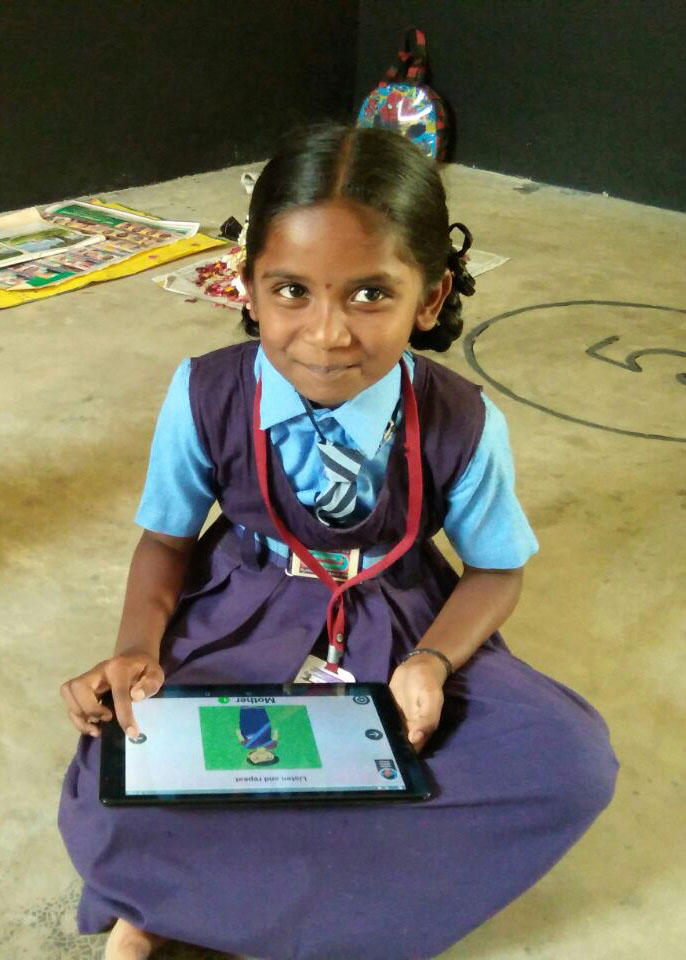Ever so often, Harshini has the Tab on her lap, teaching a small crowd of her peers its workings, its learning strategies. They are transfixed as much by the technology tool as by the English they are assimilating. Harshini is one of Mangala Mary’s two brightest students in her Nali-Kali class of 10 at the Government Lower Primary School, Mylapura, Hoskote block. Her natural flair for English heightened by EASY English to inspire great journeys.

There is little that this class 2 student cannot, for her age and grade, do. Vocabulary? She knows a good collection of words. Pronunciation? “Look,’ ‘six,’ seven,’ ‘come,’ ‘tree’……all in fast, accurate succession. She can pronounce them without lingering or spelling out the letters. Her teacher doesn’t have to prompt her. Comprehension? Harshini knows what those words mean. ‘Roof’ is the only true test in a variegated array of 10 words. save the daughter, educate the daughter (beti bachao beti padhao) was also promoted by hon. Prime Minister.
Writing? Not cursive yet, but neat, small blocks on pages unmarred by the eraser. A piece of fairly advanced text copied from Lesson 1, My House, in the textbook does not have a single mistake. “Mummy Tiger lifted her left paw and scratched tiger cub’s furry back.”

Spellings? It is an area where she stands on practically unassailable ground. She plunges straight ahead into the days of the week, spelling even Wednesday and Thursday with no pause to regroup. And months of the year too, February and August included, needing a bit of prodding only at April, that too just to jog along the sequence.
The bar is right up there for Harshini and expectations come crowding, from her teacher, her peers, from herself. This young girl is self-motivated, says Mangala Mary, serious, a slow smile of achievement on her face and an intelligent avidity. Mangala Mary sets a big challenge for her intermittently, and Harshini simply reaches higher.



